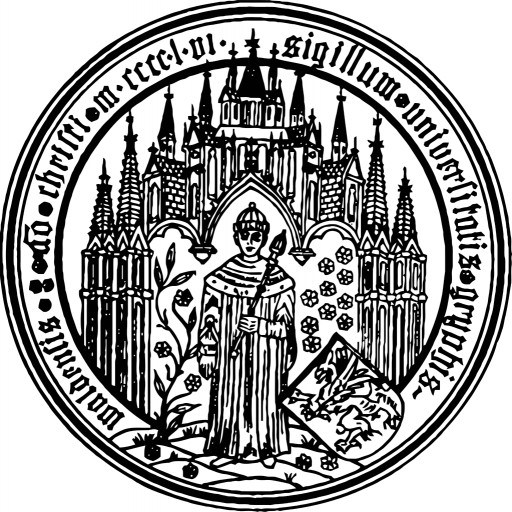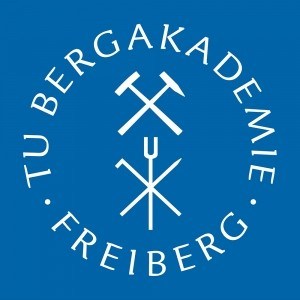Photos of university / #tu.muenchen
The Master’s Program in Earth-Oriented Space Science and Technology (ESPACE) at the Technical University of Munich (TUM) offers a comprehensive and interdisciplinary education designed to prepare students for advanced careers in space science, exploration, and technology focused on Earth observation and space applications. This program combines rigorous coursework in space physics, remote sensing, satellite technology, data analysis, and space mission design, providing students with both theoretical knowledge and practical skills necessary for tackling the complex challenges of space research and industry. Students will engage with cutting-edge topics such as satellite data acquisition and processing, spaceborne instrumentation, planetary geology, atmospheric science, and the development and operation of space systems. The curriculum emphasizes hands-on experience through laboratory work, project-based learning, and collaboration with industry partners, fostering a practical understanding of space technology development, mission planning, and data management. The program is designed to equip graduates with the ability to analyze and interpret Earth observation data obtained from satellites, contributing to areas such as climate monitoring, natural disaster management, and resource exploration. TUM’s strong links with international space agencies, research institutions, and industry provide students with valuable networking opportunities and pathways to careers in academia, aerospace industries, consultancy, and governmental space programs. The interdisciplinary nature of the ESPACE program ensures that students acquire a solid foundation in both scientific inquiry and technological innovation, enabling them to address global environmental and societal challenges through space-based solutions. graduates will also have developed robust problem-solving skills, project management capabilities, and a global perspective essential for leadership roles in space science and technology sectors. Overall, the ESPACE Master’s program at TUM offers an excellent opportunity for students passionate about space and Earth sciences to deepen their expertise, contribute to technological advancements, and shape the future of space exploration and Earth observation.
Educational organisation
ESPACE Master's Programme:The first year of the programme covers the foundations of space engineering and science as well as an introduction to three main satellite applications: remote sensing, earth system science, and navigation.
The third semester allows students to specialise in Earth System Science, Remote Sensing or Navigation.
The fourth and final semester is dedicated to a Master's thesis, which must then be defended in a Master's colloquium.
Study abroad unit(s)
None for the regular ESPACE studentsStudents participating in the ESPACE Double Degree Programme with Wuhan University spend the third and fourth semesters at Wuhan University (WHU). The Master's thesis will be co-supervised by teachers from WHU and TUM and can optionally be completed either at WHU or at TUM.
Internships
None requiredForms of assessment
At the end of each semester, students must pass one final exam for each module they have taken. Exams are written or oral. Passing all exams as well as completing a Master's thesis and colloquium are requirements for graduation. ECTS credits are allocated to all modules.Course objectives
A graduate of the Master's programme Earth-Oriented Space Science and Technology can best be described as a satellite application engineer. After completing the programme he or she is a specialist in satellite applications in the fields of Earth System Science, Remote Sensing, and Navigation. The graduate is able to interpret, analyse and evaluate satellite data within these fields. Furthermore he/she is a specialist in the satellite system, including the technical understanding of mission design and spacecraft technology.The programme's curriculum concentrates on methodology, technology and applications. Throughout the programme, the students are involved in ongoing research activities at the participating institutions. They therefore acquire a solid problem-solving capacity and are qualified for the design and development of future satellite missions.
Language requirements
If you are not a native English speaker: the minimum TOEFL scores for admission, e.g. in the winter semester 2016/17, are 234 (computer-based), 605 (paper-based) and 88 (internet-based). An IELTS certificate (Academic Module, e.g. with minimum 6.5 score in the winter semester 2016/17) is also valid for the admission. Alternatively, CAE or CPE (Level A,B,C) may be accepted as well.A certificate stating that the applicant's entire university education was conducted in the English language is also sufficient.
For applicants with a German "Abitur", good results in English in the German "Abitur" may also be accepted. Minimum score is 10 points in a Leistungs- or Grundkurs.
Up to date information on English requirements can be found here: http://www.tum.de/en/studies/before-your-studies/application-and-acceptance/english-language-skills/
Academic requirements
An above-average Bachelor's or "Diplom" degree in science or engineering, e.g. aerospace or electronic engineering, mathematics, physics, informatics, geodetics, geophysics, etc.There is an internal admission procedure. Decisions about admission rest with the programme directors. Application information can be found at: http://www.espace-tum.de.
Enrolment fees
Approx. 115 EUR per semester, the fee includes a semester ticket covering public transport in Munich.Costs of living
Depending on your needs, for example student dormitories from 300 EUR, private rooms in a shared flat from 350 EUR, private apartments from 500 EUR. The other costs of living start from 250-300 EUR. In total, it is good to budget at least 700-800 EUR per month.Job opportunities
A limited number of student assistant positions are available at the collaborating university institutes for qualified students after they have enrolled in the programme.Funding opportunities within the university
TUM offers a scholarship for its already-enrolled international students with high academic marks. The scholarship, funded by the budget of the Free State of Bavaria, offers a one-time study aid of 500 EUR to 1,500 EUR for a semester.Applications can be obtained at the scholarship office of TUM or on the internet.
Deadlines are end of March (for the summer semester) and end of September (for the winter semester) respectively.
http://www.tum.de/en/studies/fees-and-financial-aid/scholarships/scholarship-database/scholarship-for-international-students-of-tum/
Arrival support
TUM's International Center offers a special programme tailored for international students, TUMinternational (TUMi). The TUMi programme provides help and advice for new students as well as a cultural programme with events scheduled both prior to and during the academic periods.The service desk of the Student Service Center is the first contact point for international students. We are here to help you with issues such as applications, enrolment, student cards etc. Furthermore, we offer various three- to six-week summer schools combining academics with a rich menu of educational and social activities as a foretaste of university life. For international students who have been admitted to a degree programme, the Student Service Center offers a four-week pre-study course designed to help you get started at the TUM. Students new to TUM are invited to the service fair "Fit for TUM" which takes place before the semester officially starts, to get an overview of the various offerings of support services at TUM. http://www.tum.de/en/studies/international-students/
Learning German: While the language of instruction for many of TUM's postgraduate programmes is English, learning German and thus being able to participate in daily German life at a deeper level enriches the experience of studying and living in Munich. As such, TUM's Language Centre offers language classes for students at all levels, both prior to and during the semester: http://www.sprachenzentrum.tum.de/en/startseite/
Services and support for international students
The ESPACE programme provides an orientation week for its students and offers them the opportunity to meet current programme students. The orientation week usually takes place the week before lectures begin in the winter semester.Accommodation
It is not easy to find a place to live in Munich - but it is not impossible either! TUM supports students and employees in their search for accommodation, providing personal advice, in-house listings and useful information to ensure that you can quickly find a place to call your own: http://www.tum.de/en/university-life/accommodations/With high rents and not enough rooms in halls of residence, the Munich rental market is one of the most competitive in Germany - especially for students. The city boasts over 1.4 million inhabitants, with more people moving to Munich every year - many of them attracted by the excellent study opportunities that Munich has to offer.
Student halls of residence usually offer affordable accommodation for students. The Munich Student Union runs most of these halls of residence - more information at http://www.studentenwerk-muenchen.de/en/accommodation/







